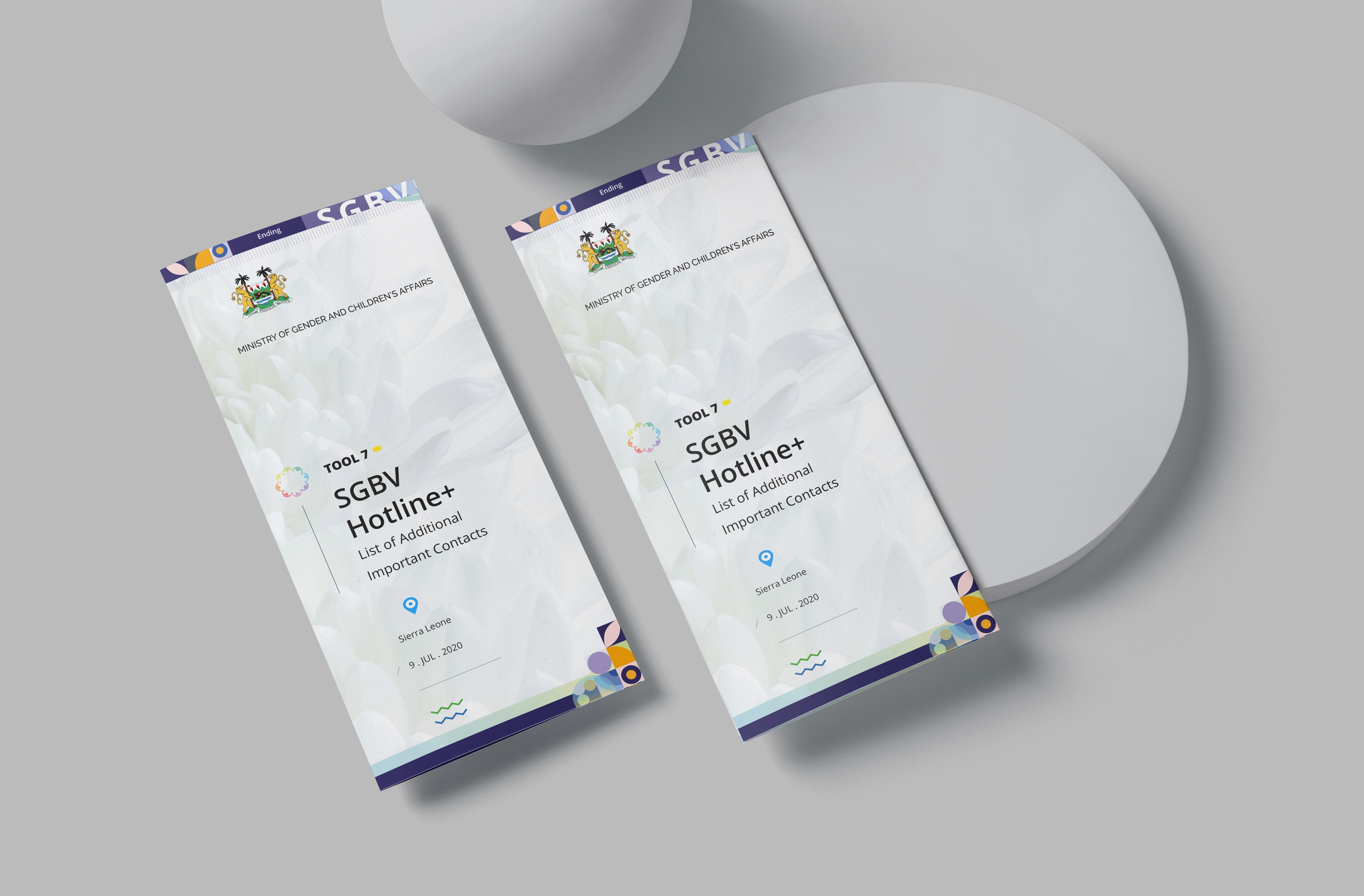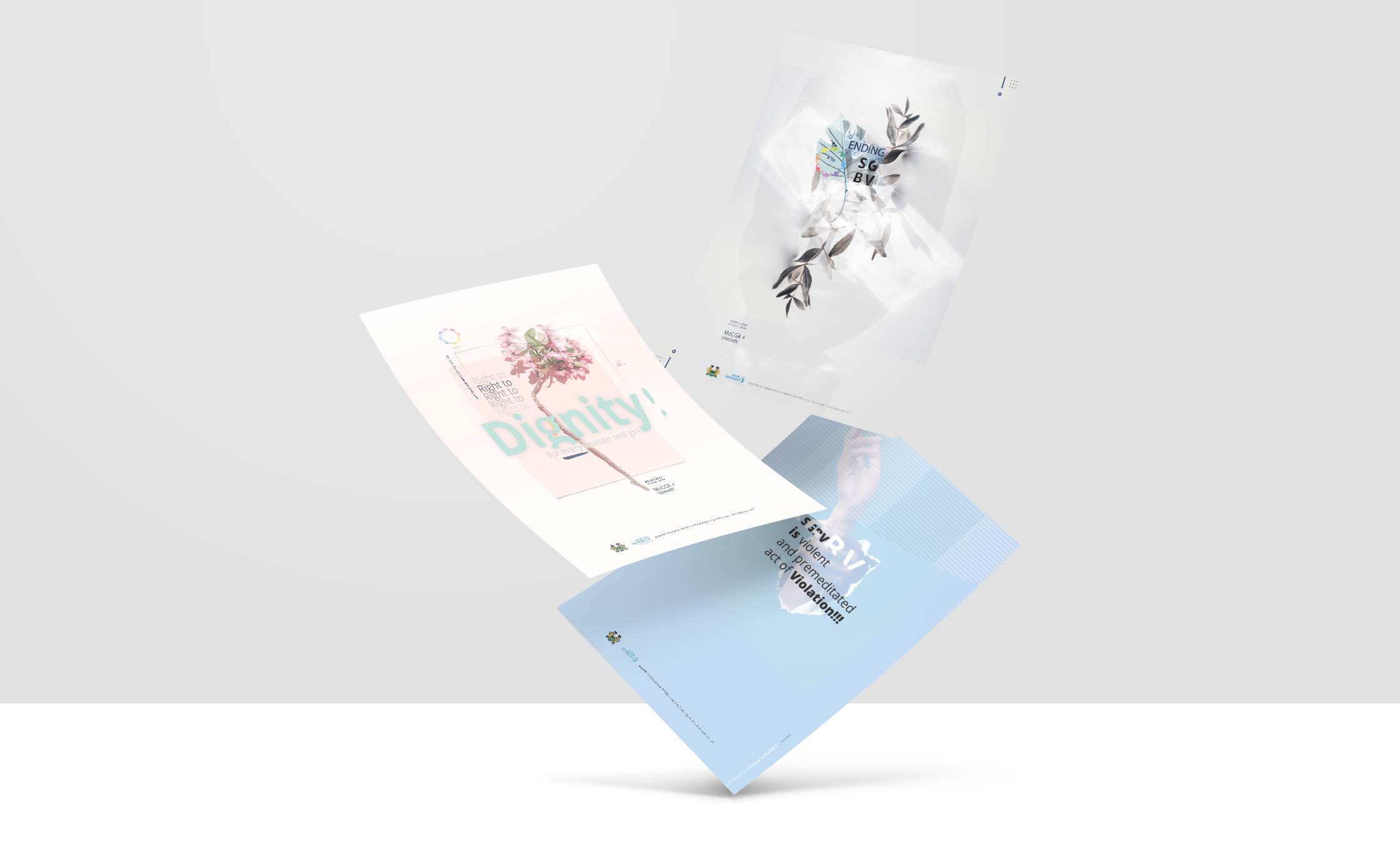2020
MOGCA + UN Women (Sierra Leone)
Editorial, Layout, Publication
Graphic Designer

OSCs are One-Stop-Centres that were created across 7 districts in Sierra-Leone for survivors of S/GBV. Regardless of their age or gender, the OSCs (developed by Sierra-Leone's Ministry of Gender and Children's Affairs in collaboration with UN Women Sierra-Leone) provides survivors of S/GBV with a caring shoulder to cry on, medical services, legal justice and a safe haven, where they can find hope and the courage to continue living.
The rapid rise of daily incidences of reported cases of rape and related sexual-gender-based violence against women and girls led the government of the Republic of Sierra Leone to declare on 7th February 2019, a state of emergency on rape and related sexual violence against women and girls on 7th February 2019. As a directive to put in place robust measures for prevention and effective management response to the survivors thereof.
Designing of an S/GBV Response and Management Toolkit whose content inspires the...
The OSCs S/GBV Response and Management Toolkit and editorial components are design to inspire empathy and dignity, while providing the vital information on S/GBV definitions, case-handling procedures and guidelines in a quick and intuitive layout; with typographic treatments that promote readability without causing eye fatigue, and an overall feminine design aesthetic.

Developing the editorial design and layout of the brochures and booklets that formed the S/GBV Response and Management Toolkit for use each OSC located across 7 of the 14 districts with the most prevalent S/GBV rates.

Initial research focused on better understanding the context of Sierra Leone's sexual and gender-based violence, and how the tools set in place for programme response addresses the users' needs.
What key issues are survivors of S/GBV facing?
Who are the key response personnel responsible for supporting survivors?
How should response personnel interact with survivors of S/GBV?
Which features are essential to inspire empathy and promote dignity?
With a conviction rate of less than 2%, and a minimum 5 year penalty for rape perpetrators,
Sierra Leonian men continue to perpetrate sexual and gender-based violence against women and girls; with impunity.
Following the trauma that they have experienced at a physical, emotional and psychological level, survivors of S/GBV need and desire quality and survivor-centred services that are confidentially delivered with empathy, dignity and compassion.
How do I reach a service provider in my chiefdom / city / district?
What if I do not have access to a telephone to call the Hotline/Helpline?
If S/GBV abused, how can I make an appointment for myself / daughter / mother / sister / aunty / grandmother / neighbour?
What if it's a child who has been raped or sexually penetrated; do I have to go through the Hotline/Helpline?
Will I have to pay for the Services?
How long will it take to get treatment at the OSC?
The establishment of effective VAW/SGBV Prevention and Response mechanisms and intervention programmes throughout Sierra Leone that will reduced by 50% in 5 years (2019-2023) and eliminate Sexual and related gender-based violence against women (by 2030). So that women and girls, men and boys, live free from all forms of violence including gender-based sexual violence; particularly against women and girls in Sierra Leone, by 2030.

After conducting desk research data was consolidated and categorised into key themes that the OSC brochures and booklets could focus and deliver on.
To kick-off the design process, quick sketches helped me get ideas on paper to establish which elements were necessary for each screen. Low fidelity prototypes were created for initial user testing.
Each layout is design for visual clarity and engagement with key concepts and large body of text with visual pops of colour in an easy to read through way.
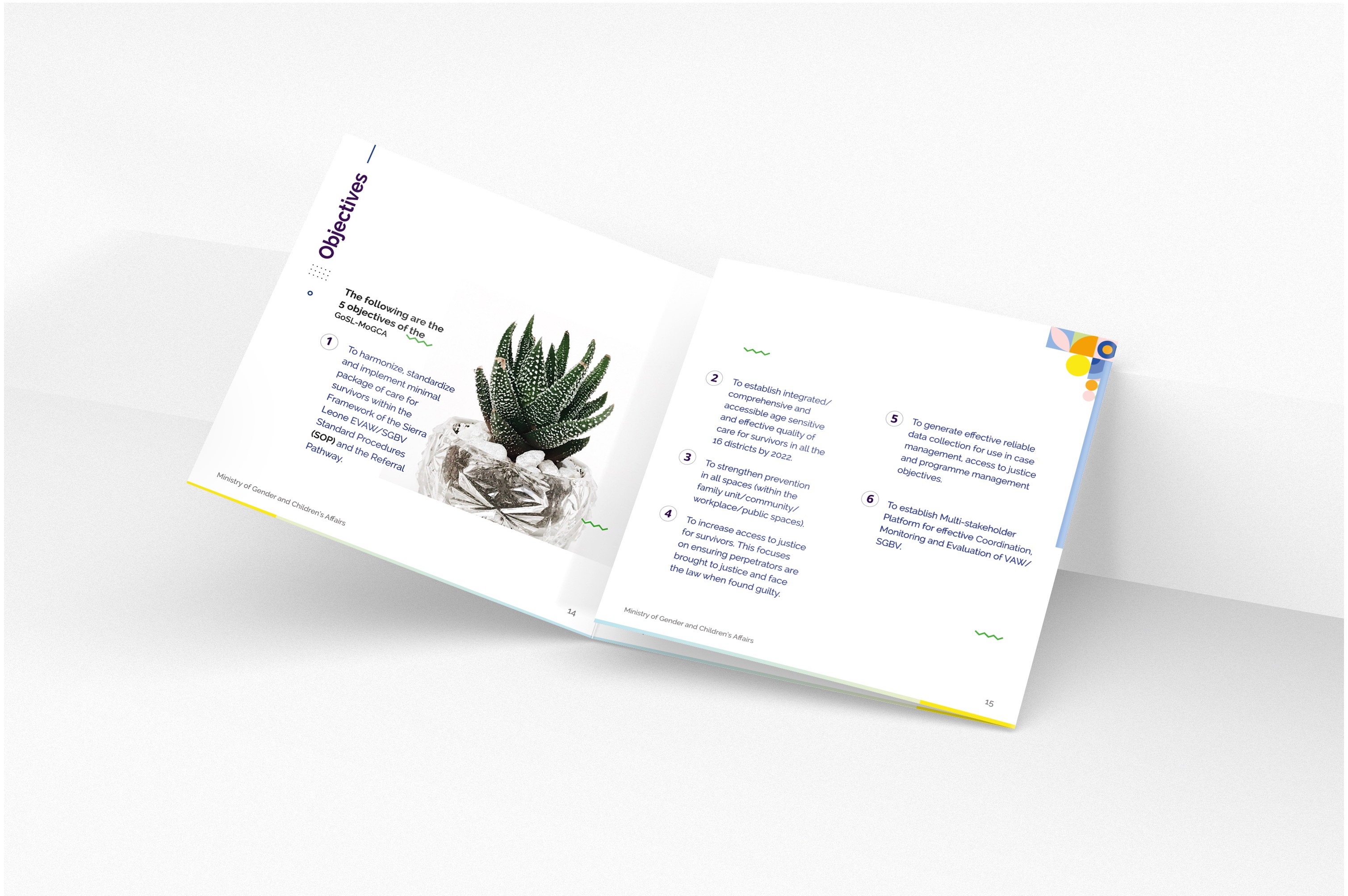
A sans serif font was used to give a more empathetic and approachable look and feel
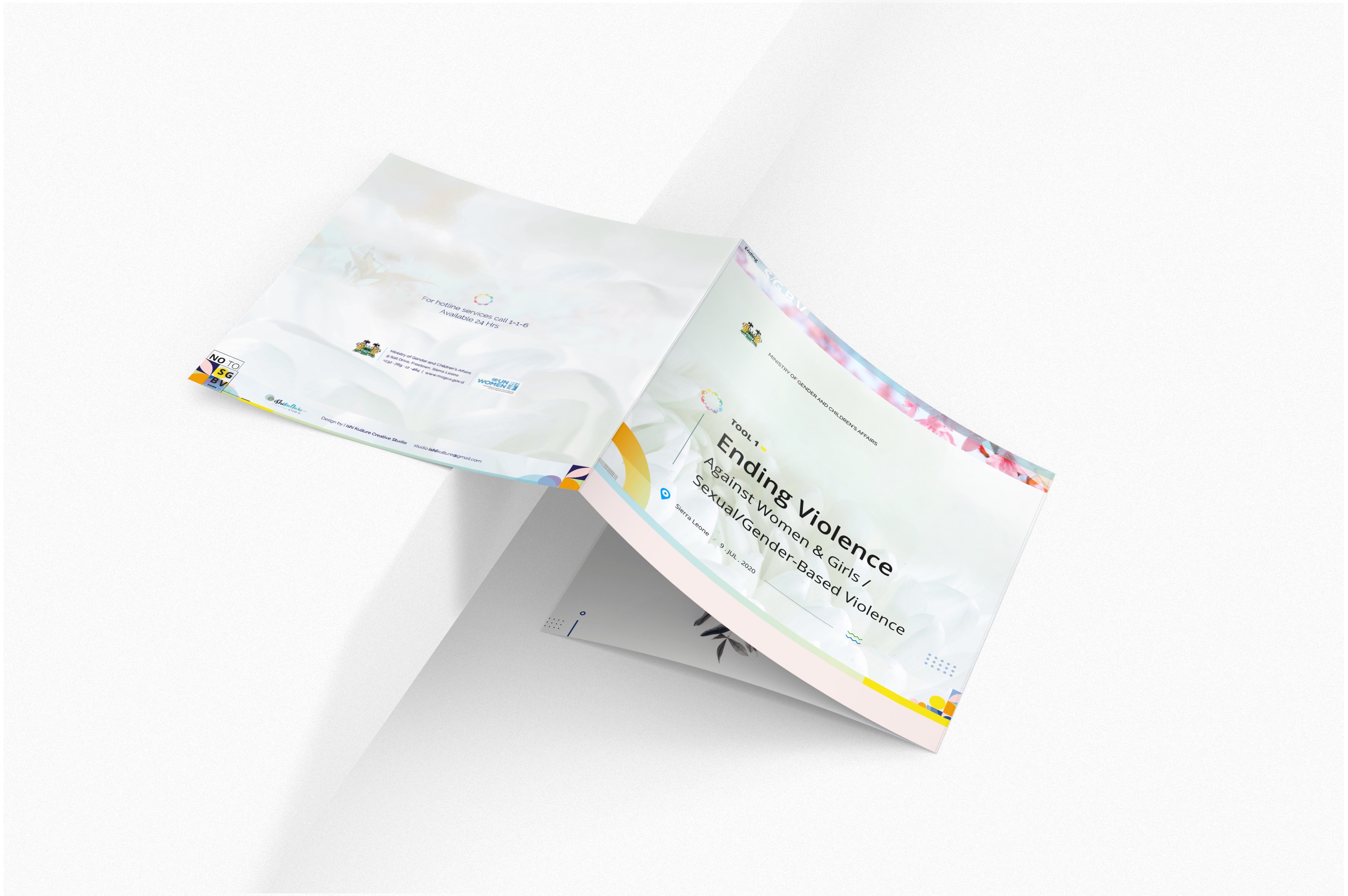
Feedback from user-tests on the print mockups provided insight into the way each brochure should fold and how the information should be structures for ease of use within the booklets
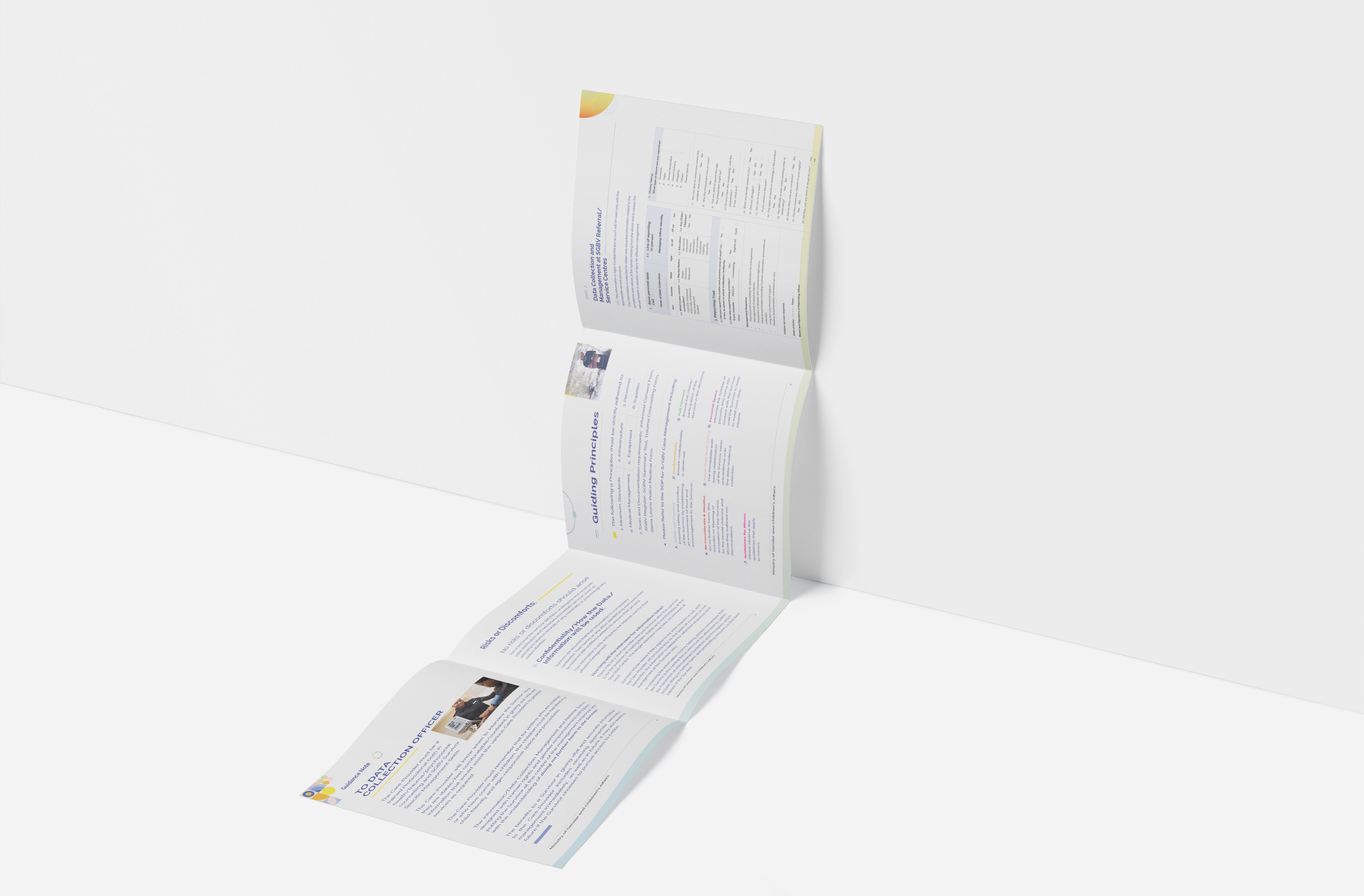
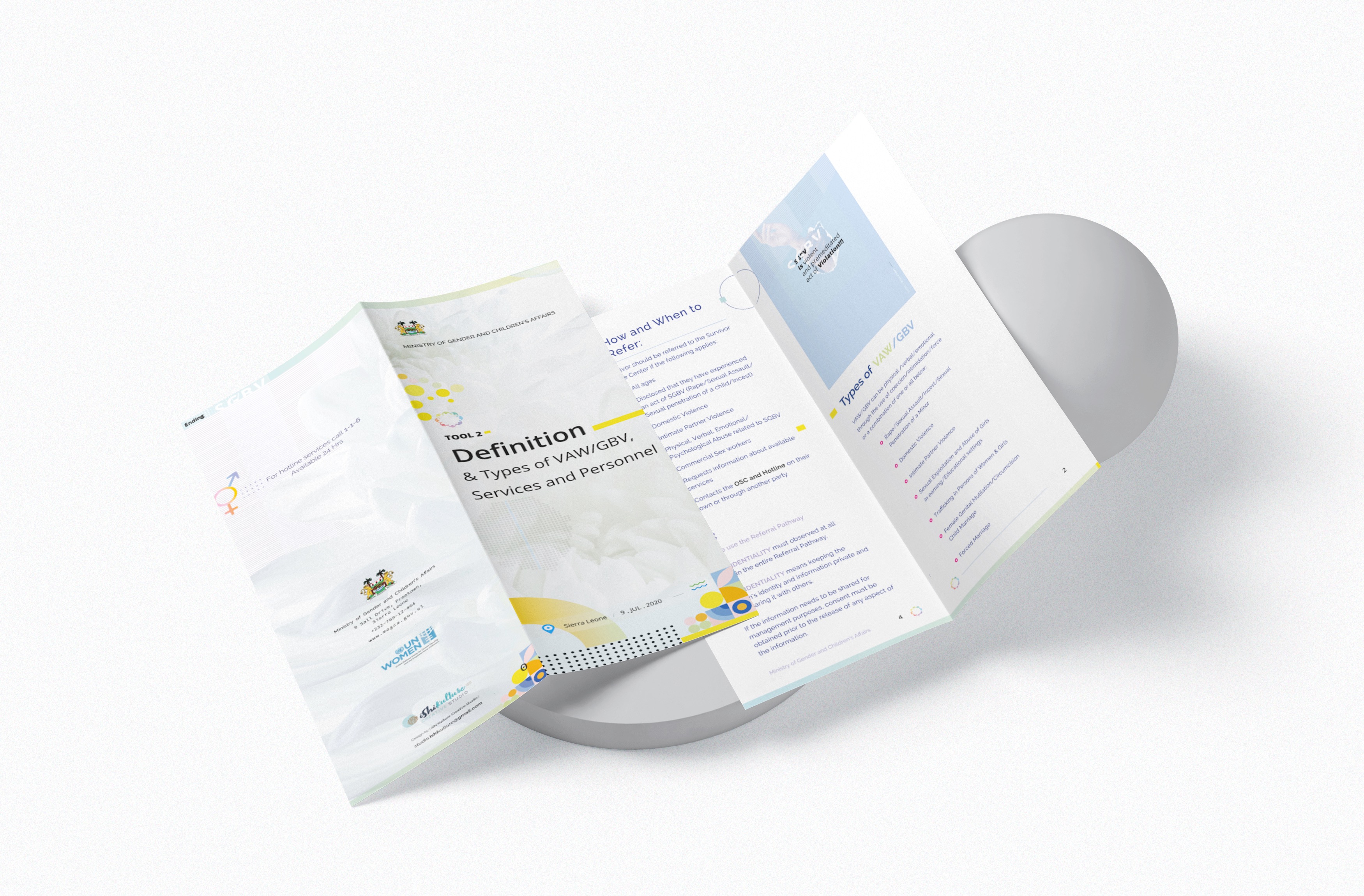
Design aesthetic needed to express the government's look and feel
The sensitive nature of the topic limited the type of photography used
Distilling all the information into an easy to read through format in a cost effective way –– in terms of printing
Use a colour palette complementary to that of the government's
Only use royalty-free portrait photography of where necessary
Use multi-page brochure layouts
Drawing inspiration from naturally tranquil spaces that inspire clarity and a sense of freedom such as the beach, the layout design and aesthetic treatments reflect the users desire to have a bold, clutter-free, look and feel that is curated to inspire peace of mind, strength, courage and hope.
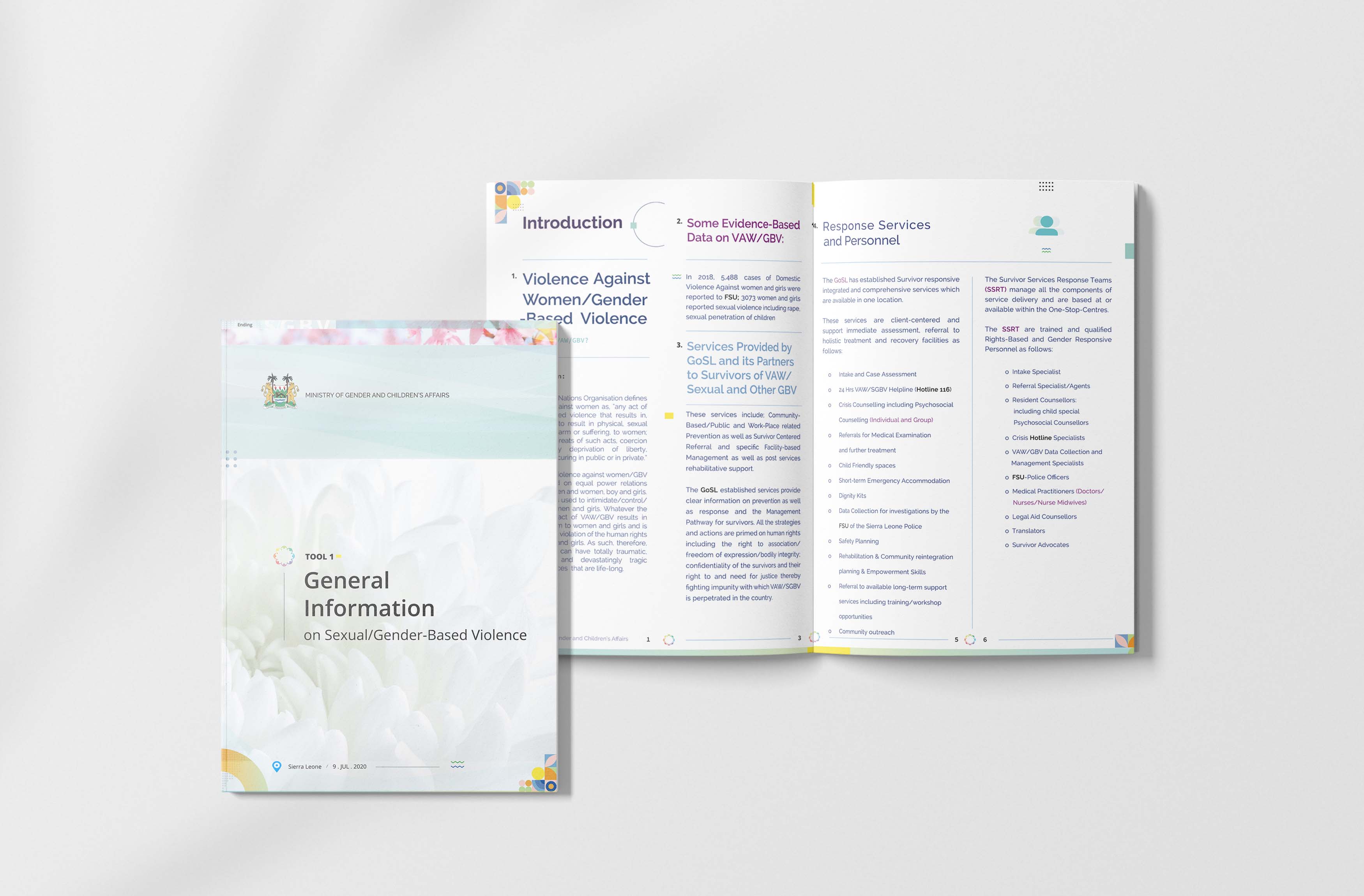
The final S/GBV Response Toolkit included 12 tools in the form of various book publications, brochures of various sizes and page orientations as well as medical forms, all packaged within a custom 3-pocket folder.



